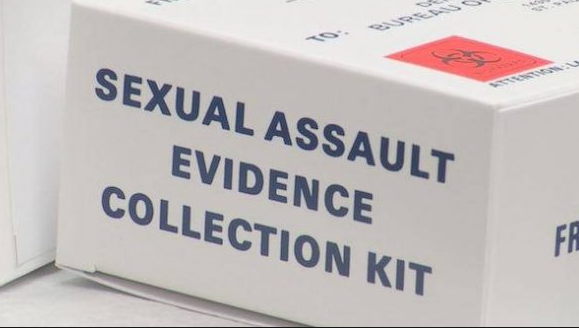While the state has completed testing the backlog of 14,000 rape kits, that backlog is now being felt in local police departments.
July 25, 2019
With survivors waiting years for answers, more than 400,000 rape kits across the country sat on shelves, untested.
Now, the Bureau of Criminal Investigation has finished testing those kits in Ohio, but the backlog is now hitting local police departments.
“I lived in fear,” said Liz Garcia.
Garcia was at home, in her bathroom, when she felt someone was watching her.
“By the time I realized there was an intruder in my house, we were face-to-face,” she said.
That intruder spent the next two hours sexually assaulting Garcia.
“It was the worst two hours of my life,” she said.
After he left, Liz went to the hospital, into a special exam room for sexual assault victims. She says she stood on a white piece of paper, naked, for hours as hospital staff swabbed her body for evidence.
“You are being looked at, and it is just humiliating after a rape. They are looking for signs of trauma, they are looking for evidence,” she said.
Then, Garcia waited for word on possible suspects. Days turned into weeks, then months and years.
“One day I come home, 13 years later, to a detective’s card on my door saying to call me,” she said.
As a part of the push to clear the backlog of untested rape kits, Garcia says cold case detectives retested her kit because her story sounded familiar to other rape victims. She recently spoke at BCI in Bowling Green to law enforcement officers about her experience.
“I’m victim number 18 for Nathan Ford,” she told the classroom.
DNA matched convicted serial rapist Nathan Ford to DNA taken from Garcia’s sexual assault kit.
Patty Stipek with BCI says one of her biggest frustrations is when they find serial rapists through the kits that were never tested. She says 330 suspects have been linked to three or more crimes like Ford.
“We got to get this guy or he re-offends for another case. That is a God-awful feeling,” Stipek said.
“When we look at that, you don’t try to exert power and control one time. It’s multiple incidents,” said BCI Superintendent Joe Morbitzer.
While the state has completed testing the backlog of 14,000 rape kits, that backlog is now being felt in local police departments.
BCI tested and returned kits to nearly every department in the state, including 4,418 kits to the Cleveland Police department, 1,432 to Akron police and 482 to Columbus police.
“We’ve talked to some of the local police departments and they are feeling that, ‘What do we do now?'” Stipek said.
Stipek supervises a special task force to help local police departments work their way through the cases. They’ve started a task force in Cuyahoga County, and are working on another task force in Summit County.
“We have formed a cold case squad here at the attorney general’s office that will assist the smaller departments in prosecuting those folks. We have a team of lab technicians, analysts and agents to assist smaller departments in prosecuting the violators,” Morbitzer said.
That is the news survivors like Garcia have been waiting to hear.
“It was the greatest thing. I kept seeing hit after hit after hit for different women, not only just me. It was great. It was the best news I could have,” Garcia said.
The state also recently passed legislation for sexual assault kit tracking. It gives a barcode to the survivors so they can follow the status of their evidence as it is processed.



